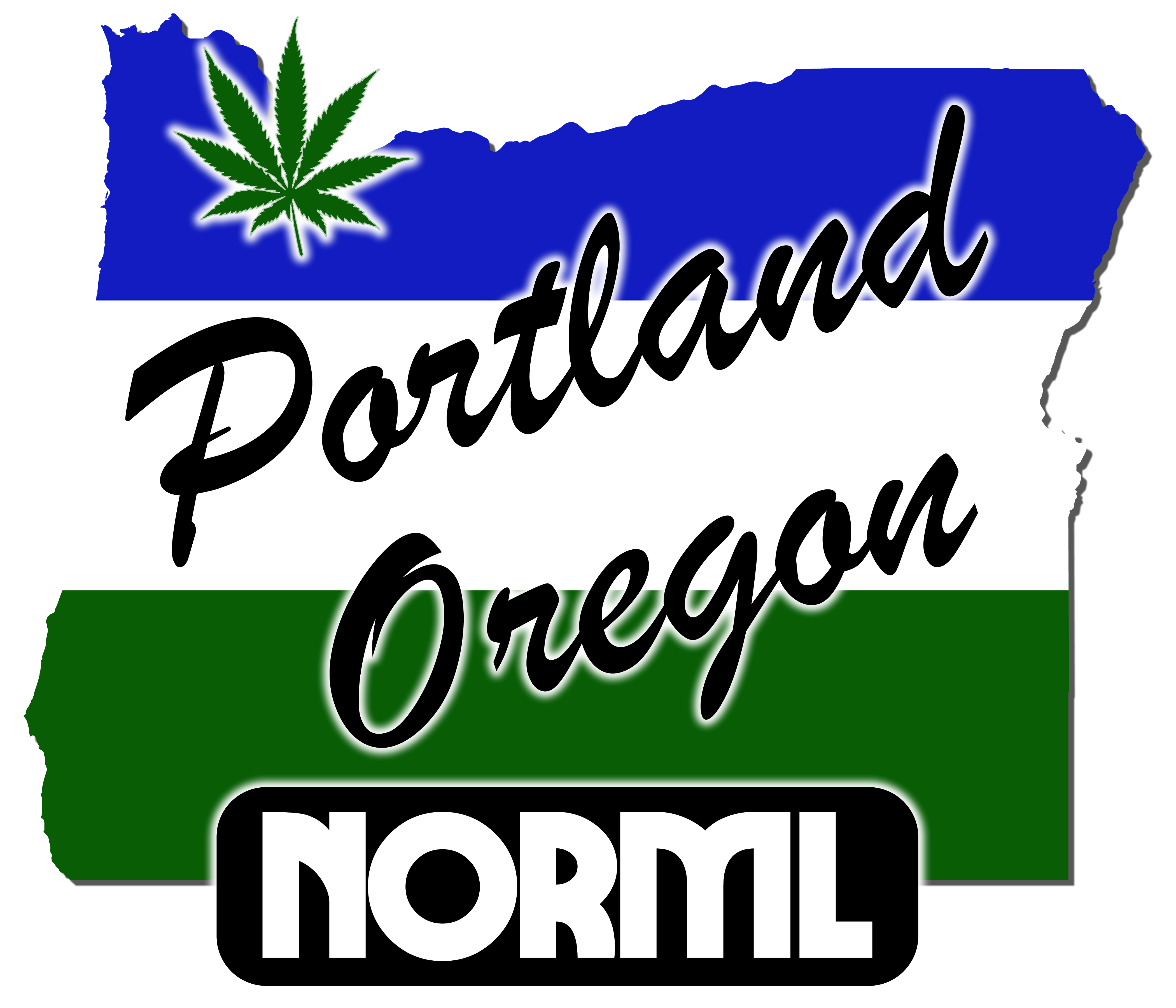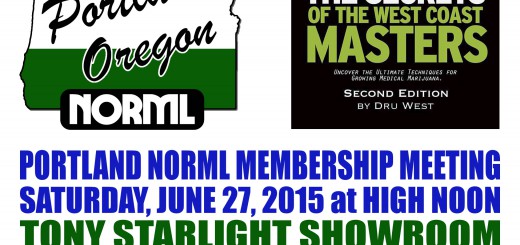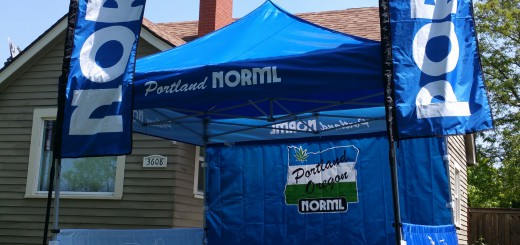HB 3400 was passed out of the M91 Committee with amendments on Monday June 15, 2015.
Mark Mayer first introduced the proposed amendments for consideration, which included the dash 9, dash 10, dash 30, dash 31 and dash 33 amendments.
The dash 9 amendment is primarily the various pieces of the recreational bill, including testing, labeling, packaging, research certification, crime reduction and other pieces related to retail sales. The dash 10 is the rewrite of OMMA found in SB 964, minus the preemption and local opt-out language.
The dash 30 sunsets the residency requirements in four years, and also includes land use language and local regulation of the various licensees and rewrites the medical opt-in for medical growers to sell excess through retail outlets, by only allowing medical excess to carry over into retail outlets but not to increase their plant limits beyond OMMA. Also some clarification language around the environmental protection task force and adds members including the Department of Energy and a Senate and House Minority appointee.
The dash 31 includes the same sunset for the dash 10, and aligns the amount of time an applicant must wait after a conviction to match Measure 91. Proposes two local opt-out options in addition to the one proposed by Measure 91. First it allows cities and counties to opt out with a vote of city council or county commissioners if 55% of voters in that county were opposed to Measure 91, which must occur within 180 days. They will not be allowed to impose the 3% taxation if they opt-out, or collect distributed funds under M91 state tax distribution. A continuing opt-out provision will allow a city or county to refer an opt-out measure to voters, but if any license category is prohibited, then they are prevented from implementing the 3% tax rate. Medical growsites, designated caregivers and patients and home production under M91 are untouched by these opt-out provisions, and will be able to operate in all jurisdictions in Oregon.
The dash 33 further reduces crime for those who possess four times their amount allowed from a C-Felony to an A-Misdemeanor.
Senator Ferrioli moved to adopt the dash 9 to HB 3400.
Senator Prozanski confirmed the process for a disappointed applicant who wanted to challenge the rejection. Mark Mayer said that there were a number of routes, but the preferred route was to go for a contested case hearing and then if still in disagreement, it could be challenged at Marion County Court, and on up through the Court of Appeals or beyond.
The M91 Committee proceeded to pass the dash 9, dash 10, dash 30, dash 31 with no objections or discussion.
When Senator Ferrioli moved to pass the dash 33, Senator Prozanski took a moment to point out that this amendment is the beginning point for the conversation of reducing criminal penalties and that he hoped to see them more comparable to beer and wine. He specifically noted section 122 of the dash 9 where he said more work was needed. Co-Chair Burdick thanked Anthony Johnson for finding an “obvious error” in the language. Co-Chair Lininger recognized Rep. Olson, Sen. Prozanski, Rob Bovett and Anthony Johnson for their assistance in identifying potential sentence reductions and expungement provisions. Co-Chair Burdick noted that the crime reductions were one of the uplifting portions of the bill.
The dash 33 was then adopted without objection.
Sen. Ferrioli moved to suspend the rules to take action on HB 3400 without the full revenue and fiscal impact statements on hand. Burdick clarified that the fiscal was primarily in the dash 9 and dash 10 and that the fiscal for those amendments was available, but not on the newer amendments, so that is why a suspension of the rules was necessary. Without objection, the rules were suspended.
Sen. Ferrioli then moved to pass HB 3400 as amended to the House Floor with a Do-Pass recommendation.
Rep. Buckley expressed his “intense frustration” with the process that the committee followed to complete this bill and that he felt that the public was largely excluded from that process. He also said that there were fiscal impact concerns that should have been addressed by the committee, but that they would now need addressed in the Ways and Means Committee. He said he would be voting yes as a courtesy to his House Co-Chair in recognition of her hard work in getting to the point where we are currently.
Rep. Olson commented on the shifting process since 1974, where any amount of marijuana was a C-Felony, then the next year it was an ounce, then a few years ago four ounces, and now this.
Sen. Prozanski again commented on the need to lift the burden of those convicted under previous laws and to ensure we weren’t saddling new individuals under similar burdensome laws, noting that there was still work to be done. He further commented that this bill didn’t include early sales on July 1st and he was committed to doing everything possible to make that happen in the next week, even if that meant that the state wouldn’t be able to collect any revenue on initial sales, to prevent the unintended consequences of fortifying the underground markets.
Rep. Helm spoke passionately about his intent to monitor and solicit feedback from the community if any local governments were abusing their regulatory powers to prohibit legal businesses from operating. He said that there were clear paths to limit licensees and if localities were not behaving in good faith and regulating reasonably as proposed in the bill, that the legislature should revisit this issue.
Rep. Lininger thanked all the various individuals who have assisted in getting to this point, with concern that she may have left out some names. She particularly noted the crime reductions, the OLCC directive for youth marijuana education, worker protections and whistleblower protections, lab standards and testing as well as access to out-of-state capital with sufficient background checks as areas that she was particularly proud of. She noted that the way you can tell that the committee has reached a consensus is that everyone is mildly dissatisfied with the bill.
Rep. Wilson noted that the work the committee had performed was work that most Legislators did not envy and was difficult. He said that most of the committee knew very little when they first began this task, and had to learn as they went. He said that the product found in HB 3400 was explicable and that this is something that would be work in progress “forever”, but that he was proud of the product as it stands today.
Co-Chair Burdick also thanked members of the committee for their effort, and hoped that this would be a model for other states. She noted that there was increasing pressure on the federal government to decriminalize marijuana. She said she had become more passionate each day about federal “delisting” of marijuana, and that when that day comes, Oregon will be able to be a vital part of the national market.
The bill passed as amended unanimously. Rep. Lininger and Rep Olson agreed to carry the bill in the House and Sen. Burdick and Sen. Ferrioli agreed to carry it in the Senate.
Co-Chair Burdick then opened up a public hearing on HB 2041, with the dash 2 amendments that deal strictly with the tax issues and a recently posted dash 3 amendment.
Bob Blake of Oregonians for Better Health testified about the need to keep taxes low so as to discourage people from using the OMMP as a means to avoid taxation. He explained it was a simple math model that illustrated that anything above a 10% tax rate was likely to drive more people into OMMP simply to avoid taxation. He also encouraged the fees for OMMP to be channeled back into patient and program needs instead of siphoned off as in previous years.
Shawn Savage, a computer systems architect, then testified about a free opensource computer model that he put up online that models the flow of cannabis for purposes of determining revenues from taxation and flow of marijuana to identify chokepoints.
Mazen Malik from the Legislative Revenue Office then spoke about the taxation and how it compares to what was originally proposed under M91. While he was not yet prepared with specific numbers, he did note that the legal market wouldn’t be able to compete on price only with the black market, due to the increased costs of regulation and taxation. He noted that the revenue estimate for M91 was approximately 20-21 million dollars per year once it was up and running, based on capturing about 1/3 of the recreational market. He said it may be 10-15 years before the pressures on the black market were sufficient to push the black market price up to levels similar to what we have with alcohol today.
Co-Chair Burdick explained that we were trying to keep the tax low to discourage the black market, yet at the same time ensure that we would be raising the levels of taxation that voters expected when voting on Measure 91. She also noted that the next scheduled meeting was at a new time and day - on Thursday June 18 at 8:30 am with only one-hour required notice for agenda items or cancellation.





